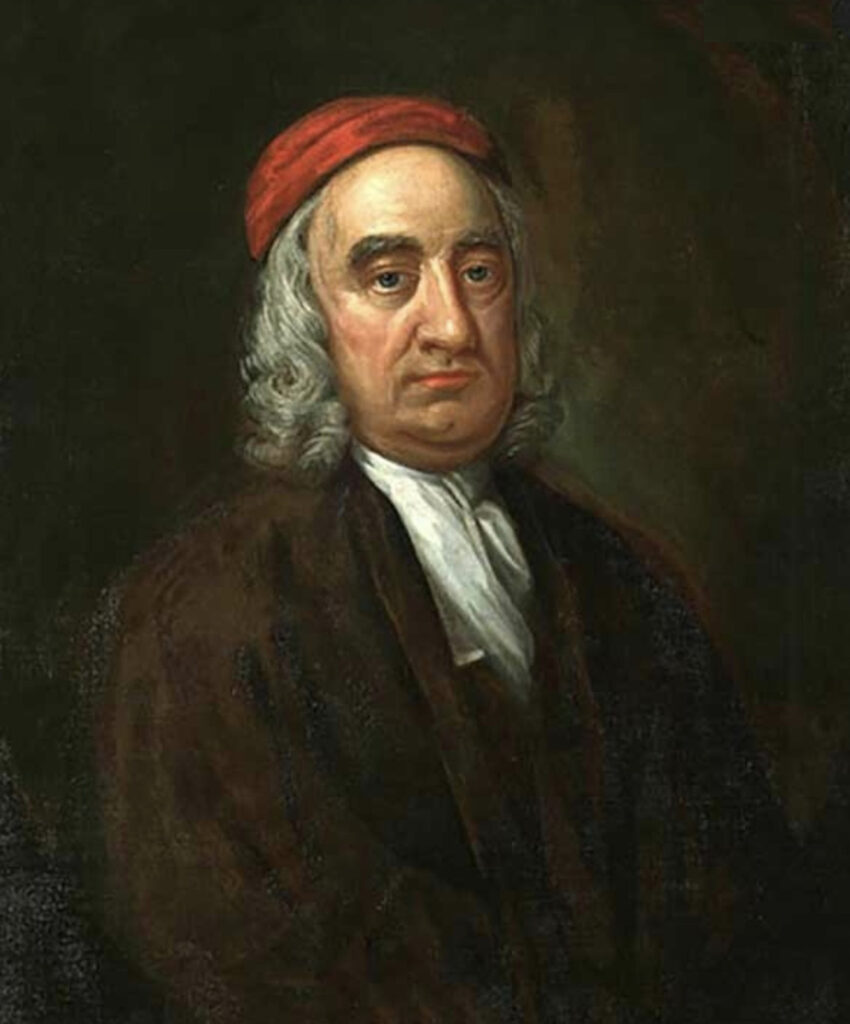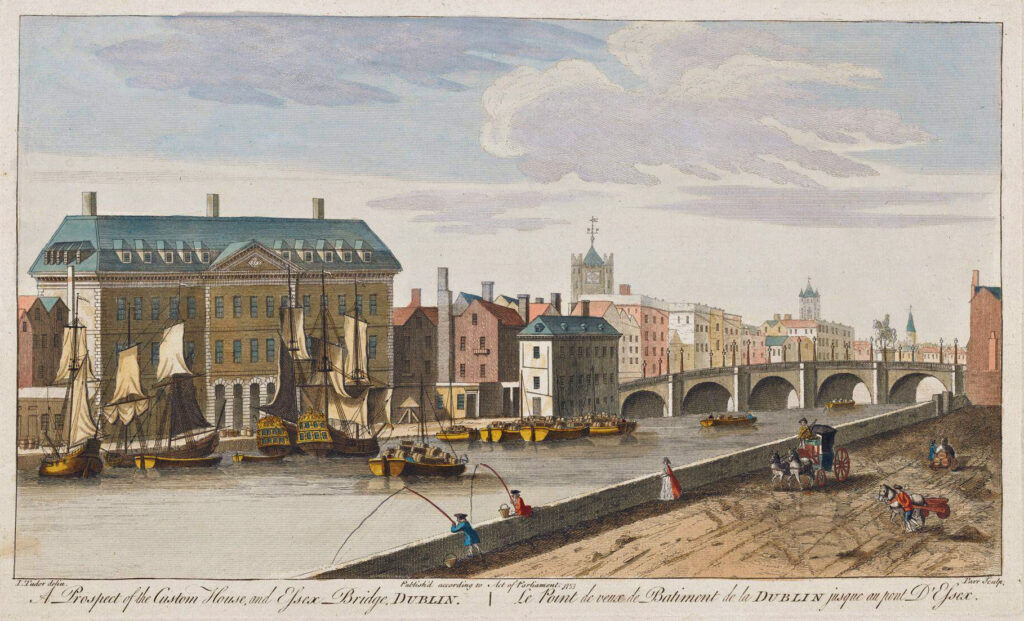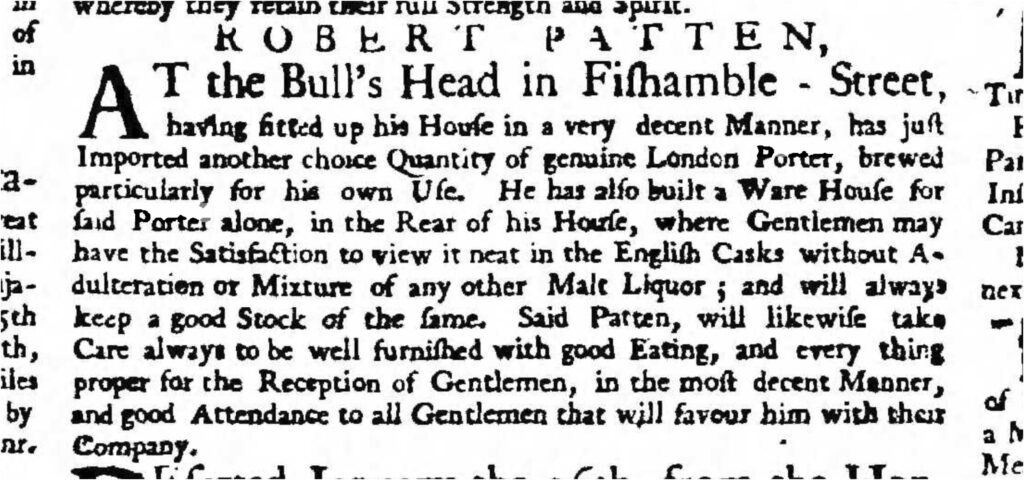In October 1736, Jonathan Swift, dean of St Patrick’s Cathedral in Dublin, and the foremost satirist of his age, published an attack on English porter, which was made, he said, of “the worst Malt, which is sent from all parts of the Country for that Use, and consequently nothing but Gin exceeds it for Badness.” The smell of London porter, he said, was “sufficient for any Creature above a Swine,” and he slammed Irish publicans for selling English beers, “Liquors inferior to those manufactured in Ireland, but esteemed because they are Foreign.”

You will not have read about this before, because Swift wrote his denunciation of English porter under the pseudonym of Geoffery Jinglestaff, in a short-lived Irish newspaper called the Dublin Daily Advertiser, and more than two centuries of Swiftian scholarship has failed to match up Jinglestaff with the author of Gulliver’s Travels. This is surprising, because an English journal, Wye’s Letter, repeating big chunks of Jinglestaff’s attack on English porter a couple of weeks after it appeared, swiftly (bad pun intended) outed the author as “a certain witty Dean”.
Can we be sure that Geoffery Jinglestaff was Swift? Given that Swift often wrote pseudonymously, and two of his known pseudonyms were “Isaac Bickerstaff” and “Simon Wagstaff”, the latter name used for his satire Polite Conversations (more fully, A Complete Collection of Genteel and Ingenious Conversation According to the Most Polite Mode and Method), published in 1738, I think we can. In addition, Jinglestaff’s columns appeared in the Daily Advertiser under the heading “The Scribler”: Swift was a member of the Scriblerus Club, a group of writers that included Alexander Pope, and John Gay, author of The Beggar’s Opera.
Sadly, we do not have, it seems, the original of Jinglestaff’s/Swift’s polemic on porter: the edition of the Dublin Daily Advertiser in which it apparently appeared, dated Tuesday October 12 1736, is one of many copies of the newspaper now missing after 285 years. We only know of its existence because parts were reprinted in the London-based Wye’s Letter of Saturday October 23 1736, which reprint was itself reprinted in the Derby Mercury of Thursday October 28 and the Caledonian Mercury of the same day. (If you go looking for the Dublin Daily Advertiser, incidentally, be warned that the only site apparently to have any copies, newspaperarchive.com, has screwed up the metadata and claims it was published in 1836/7, not 1736/7.) Wye’s Letter itself is strangely obscure: there doesn’t seem to be any repository on the web for it, and its existence today appears to be limited to mentions in scanned copies of multiple other 18th century newspapers, for which it seems to have been a sort of Georgian Press Association or Reuters, supplying them with news and other titbits from the capital.
A couple of months after his first attack on English porter, Jinglestaff/Swift, who was writing twice-weekly for the Daily Advertiser, Tuesdays and Saturdays, returned to the theme. He claimed that he had been told by a person with “a very serious Face” that “some of our top Ale-Houses were about to come into Articles with Humphry [sic] Parsons, Esq, Alderman and Brewer of the City of London, to vend no other liquor but his Intire-Butt [ie, porter] for the term of One and Twenty Years.” Humphrey Parsons, owner of the Red Lion brewery at St Katharine’s, just east of the Tower of London, was well-known as one of the leading brewers of porter in the English capital.
Swift’s claim was presumably again meant to stir up the brewers of Dublin into a counter-attack on their English rivals and end the assault that London-brewed porter was making on the Irish drink market. London porter, Swift said, sold in Dublin for four pence a quart, “which Quart wants exactly half a pint of London measure,” while in London a (London) quart sold for 3d retail. The English brewers, he said, sold the porter wholesale to Irish retailers at 1½d per (London) quart, which, including the difference in the size of the two quarts, meant Dublin publicans “get 3d or more clear Profit.”

The Dublin Daily Advertiser, the first daily newspaper in Dublin, was started by a man called James Hamilton, in partnership with a bookseller and printer named Ebenezer Rider, in October 1736, and remained in business for only two or three years. (One source claims that the last known edition was dated September 29 1739). It promised to reach “Inns, Taverns and Coffee-houses throughout the Whole Kingdom [of Ireland], and the chief Ale-houses in the City of Dublin.” Which of a number of possible James Hamiltons was behind the paper is not known. It has been claimed that he “appears” to be the James Hamilton of Rock-Hamilton, near Newry, in County Down. That James Hamilton’s aunt, Jane Hamilton, neé Leslie, of Castle Leslie, in Monaghan, and her brothers Robert and Henry, were good friends of Swift, which could be the link between Geoffery Jinglestaff and the Daily Advertiser.
Jinglestaff’s columns in the Daily Advertiser look to have ended in February 1737, after only four months. Swift was now 69, and increasingly unwell. The previous month the newspaper had carried an odd advertisement offering prizes of £12 and £8 – worth perhaps £2,000 and £1,300 respectively today – for “the two best poems on the Reverend Patriot of Ireland, J. Swift, DD,” with “the Authors … allow’d to use feign’d Names of what Sort they please.” Again, the issue of the paper revealing the winners seems to be among the missing.

Despite Swift’s attacks, English porter continued to flow into Ireland by the shipload. In January 1739, Robert Patten at the Bull’s Head in Fishamble Street, Dublin, one of the city’s leading taverns, announced that he had “just Imported another choice Quantity of genuine London Porter,” and had built a warehouse in the rear of his house “for said Porter alone,” where “Gentlemen may have the Satisfaction to view it neat in the English casks, without Adulteration or Mixture of any other Malt Liquor.” Eleven months on, in November 1739, William Kelly at the Lord Carteret’s Head in Castle Street, Dublin advertised a “choice good parcel of the best London Porter, brewed on Purpose for him.” A short while later, in April 1740, Patrick Kelly at the Two Green Posts in Meath Street, Dublin, was declaring that he sold “right stout London Butt Beer, which has been in this Kingdom these six months; such as is sold at John Bryan’s at the Cock in Old Street, London, which was one of the most noted Houses in London for Porter.”
Local brewers seem to have responded to the competition from English porter brewers by making their own versions, at least according to newspaper reports. The Dublin Journal boasted in its issue of June 10 1740 that “It is universally allowed that the Porter or Beer, brewed in this Town, greatly excels that, in every Respect, which is imported from London.” The following week the Journal insisted again that the porter made in Dublin was “greatly superior to that imported from London, which is sold for four Pence a Quart, and that of our own making for only three Pence, altho’ it exceeds the English, in Strength, Colour and Taste.” The newspaper then listed nine hostelries where Dublin porter was sold: Paul Guimmett at the King’s Head in Mutton Lane; John Willcocks at the Ram in Weavers Square; Patrick Geoughehan (sic) at the Alderman Walker’s Head on the Upper Coombe; John Hardin at the Bear in Bride Street; John Walker at the Three Sugar Loaves and Plume of Feathers in Castle Street; William Comerford at the Parrot and Two Sugar Loaves in Dame Street; James Flanagan at the Ferry Boat “at the Ship-building”; Patrick White at the Rose in Rose Alley, Cole Quay; and Robert Pyke at the Bear in Francis Street.
Sadly, the newspaper did not name the brewer or brewers of this Dublin porter. Nor did its praise seem to make any impact on buying habits, since the imports of black beer from England continued to pour in. Six months later the Dublin News Letter reported: “By Letters from London we are assured, that there is shipped for this Port 700 Buts [sic] of Porter, which is 2100 Barrels,” adding with a tone of anxiety that “it is hoped the Importation of this Liquor will be stopp’d,” and again assuring readers that “several of our Brewers [have] at this time a Liquor equal in taste and Goodness to the best London Porter.”
In fact it would be another three decades before Dublin brewers finally cracked the secret of brewing porter as good as that made by the top London firms, as tens of thousands of barrels of English black beer flowed into Ireland every year, and it was 15 or so years after that before imports of English porter started to fall. Eventually, of course, the tide reversed, and a century after Swift’s attack, Irish porter was pouring into London. Doubtless his shade smiled.


Another fascinating bit of research. Any news of the definitive book on Porter etc? Hope you have a very merry Christmas, Martyn – I’m definitely in the festive mood, having managed to find a few bottles of Fuller’s Vintage Ale (no mean feat in deepest Dorset).
Cheers
If I could ever find the time to finish the fecker … merry Christmas to you too, Rod, and enjoy your vintage ales, the 2021 appears to be a good one.
In my opinion, yes – a very good one. Literally drinking it now, and thoroughly enjoying it.
Swift’s knowledge of Lilliputians much exceeds his knowledge of good beer.
I am reading an history book (1) on Plants of Canada in which it is reported that, in 1794 in Quebec City, Dr John Mervin Nooth has succeeded in making Maple Beer using Maple Sap and «wild hops of this country». The physician says his Maple Beer taste like Good Liverpool Beer imported into Canada.
I would like to know more about the Good Beers of Liverpool at the end of XVIII Century.
(1) Curieuses Histoires De Plantes Du Canada, Tome 3, 1760 – 1867, page 46. – éditions Septentrion – https://Septentrion.qc.ca
I doubt that it was different from any other local beer brewed at the time: probably amber-coploured, about five or six per cent abv and middlingly well-hopped.
[…] Why Jonathan Swift Said English Porter Was Only Fit For Swine: https://zythophile.co.uk/2021/12/20/why-jonathan-swift-said-english-porter-was-only-fit-for-swine/ […]
[…] 🍺Why Jonathan Swift Said English Porter Was Only Fit For Swine: https://zythophile.co.uk/2021/12/20/why-jonathan-swift-said-english-porter-was-only-fit-for-swine/ 🍺A Complete History of Porter- The “Entire” Beer: […]